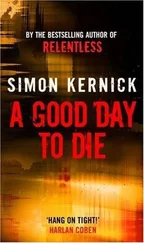Recognizing the universe mathematically is an ability Malcolm was born with. It’s precisely these instincts one must nourish and protect. It’s a curious paradox. In the service of authenticity one is labeled recalcitrant and eccentric.
Professor McCarty earned his undergraduate degree in physics. Then he realized the divisions of most unusual derivation came not from numbers but syllables. They were orders of magnitude more unpredictable and dangerous. The ferocious recklessness of a pen and mouth deserved the astonishment awarded delinquent asteroids. No celestial body compared to the delirious, high-wire, no-net orbits of a poet. By then, he’d discovered Keats, Byron and Shelly.
In the Allegheny Mountains of northwest Pennsylvania, April is still winter and ice smells of a permanent absence without the impulse of invention or revision. The air is odorless and bleached. It’s what a terminal man dreams when all sensation is removed. There are no lavender Crocuses pushing up from snow, no Tulip necks or frail Hyacinths. No daughter arranges snow flowers in a basket. There are no flowers or daughters or baskets. There’s only the cut of cold. In the end as in the beginning, the knife. And the curriculum committee thought the Elizabethan Period was irrelevant.
Patricia McCarty watches Malcolm ride confidentially down Maple Ridge Road. The day is Attica gray with a texture suggesting metal, bad food, child abuse and felonies.
In the Allegheny foothills where Pennsylvania becomes New York State, they call the border Penntucky. Here the erasure of possibility has the sheen of aluminum shedding, losing its edges and purpose, elegance and nerve. Surfaces are like ditch-water in night rain where you can’t see your face. Corroded swingsets tilt above punctured tires, cars rust in backyards and the daughters don’t return. The boys come back between tours in Iraq and prison. They’re bums with palms outstretched for money.
There’s an ashy arithmetic to explain this geography and how it creates its own self-perpetuating stain. Thirty-five-year-old women have emphysema, can’t comprehend email, and spend $500 a month on satellite TV. They leave their babies in the same diapers for weeks.
“Why do they do that?” Malcolm wondered.
“They like to hear them cry,” Patricia replied.
“And the TV bills?” he asked.
“What should they be doing?” Patricia demanded, angry and defensive. “Prepping for their MCATS? Their bar exam?”
Malcolm thinks character is constructed from consistent decisions. And the women of the hollows and trailer parks deliberately make malevolent choices. He is completely wrong. Volition is not a component. Their circumstances are an inevitability within the system itself. Is there a hierarchy of ignorance? Is the inability to evolve aesthetics criminal? Is it a sin or a felony? What is their punishment? Imprisonment? The stake?
Malcolm is accustomed to pronouncing judgment from his elevated perch. Of course everything he touched responded. He planted their garden, along with the garden each successive college president’s wife held the Spring Tea in, along with the Trustee Luncheon, and the barbecue for the rare stray Pulitzer novelist. Malcolm tracked the sunlight effortlessly, laying out the first plots, digging holes for Lilac trees and Ornamental Plums. Malcolm made vegetables appear. With a roll of twine and two consecutive Sundays, he planted seeds for tomatoes, peppers, corn, carrots, and pumpkins. He supplied some off-hand, barely conceived weekend formula and solved the problem. Abracadabra.
The following spring, he built the gazebo and granite fountain. He filled the car with stones from the Genesee River. He cut and pruned. Later, he added on the sunroom and restored the fireplaces.
“How do you know all this?” she wondered.
“I was an Eagle Scout,” he replied. He spread his lips into a sort of smile. When he laughed, it was curiously without sound. He produced a sort of translation from where he really lived. It was distorted by distance and impossibilities and his face stalled in a ghastly mime, as if he had palsy.
Patricia had three brothers but she was the one they called professor. Adjunct as it turned out, despite Malcolm’s efforts. Adjunct. Without the office or letterhead, prestige or pension.
They could have retired to Florida. Malcolm had almost agreed. There was a moment, a window they call it now, and then the window closed. The door shut. The entire room was erased.
It was after the unfortunate business with Bob Lieberman and his sordid divorce. Then his lurid remarriage in the disco lounge of Flint & Bow Indian casino.
“How did he meet her?” Malcolm was driving home.
“She was a server in the cafeteria,” Patricia said.
“They bonded over Jell-O?” he asked.
Patricia looked at him.“What do you really think?”
Malcolm didn’t hesitate. “He should commit seppuku.”
Malcolm doesn’t realize that personal catastrophes strike the distinguished and the negligible. Honor is not a factor. Some devastations aren’t reported on the evening news .That’s why she avoids headlines. What’s important are the back pages, the obituaries in small print and the corrections in pale gray.
Celestial aberrations can assault you as you bend to adjust a lamp. Uncharted comets leave trails of dust like shed feathers. Some phenomena can’t be described on a chalkboard. Conventional symbols are inadequate. They’re not like the fundamental significance of triangles or how to manufacture machine guns. Everyone comprehends the principles of the obvious.
In Allegheny Hills, it’s said things come easily to Professor McCarty. His first interview provided an immediate position. Provost Kruger, with his chapped lips and shredding in pieces like tiny fish scales, was making what would be his final appointment.
“I want you to stay,” the Provost revealed. “It’s personal.”
“Well, of course I’ll stay,” Malcolm replied. It was an unusually warm May. Maples budded on hills in patterns of red nubs like fallen constellations. It was a forest of kissed mouths north and south for three hundred miles.
“Winter is difficult. Locals are a fifth generation underclass and profoundly mean. No employment since the oil wells. We don’t have a movie theater. There’s no restaurant.” Provost Kruger paused. “But, for the self-contained man.”
“Yes, of course,” Malcolm said immediately, though it went without saying.
Patricia was in her back-to-the-land phase. They brought the retiring engineering dean’s house on Maple Ridge Road. That summer, Mac constructed a gazebo in the meadow. Patricia was twenty-four and wore long gingham print skirts that weeds and grasses stained. Not stained, but rather embossed with a pale green filigree.
Malcolm painted the gazebo white. He built two benches by the stream and scattered wildflower seeds. But it was Patty’s garden. Patty, barefoot, carried baskets of tomatoes individually wrapped in newspaper like swathed infants.
The house was encircled by a hundred-year-old apple orchard, most of them twisted and feral. Late spring was honey yellow. The afternoon air contained something ancient, with complicated properties like grainy amber and the barely detectable imprint of wings.
In mid-summer, the ring of apple trees was a gold circle promising everything. The sweetness of inflamed, seductive yellows gave him a sort of vertigo. He looked at Patricia and thought, This is a yellow I’d go to hell for, sin for, lie for and marry . It’s what he imagined late summer afternoons could be, subtle and refined like rarities in antique shops. The air was a vagrant intoxicating dust.
There was a particular moment Malcolm uses as a reference point. It was an August afternoon in a sudden warm rain. He was watching Patty kneeling on the ground. Afternoon was glazed and fragrant, intricate as a gold locket in which you engrave the names of your daughters. Patty was moistened like a European movie star shot through a Vaseline lens. He realized it could be Thursday in England or Italy. In rain all landscapes are vulnerable and slow. Rain renders history manageable. Events are compressed to the size of a canvas or a door.
Читать дальше






![Джон Харгрейв - Mind Hacking [How to Change Your Mind for Good in 21 Days]](/books/404192/dzhon-hargrejv-mind-hacking-how-to-change-your-min-thumb.webp)





